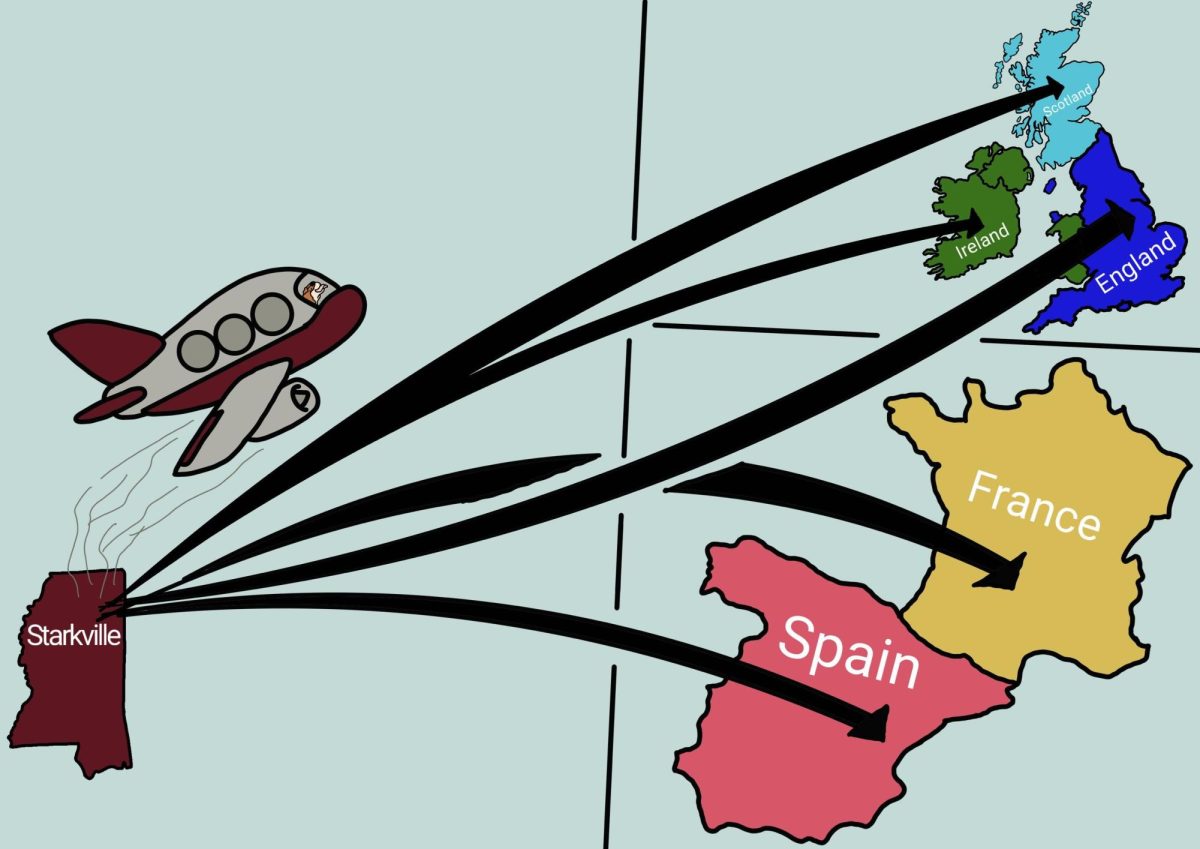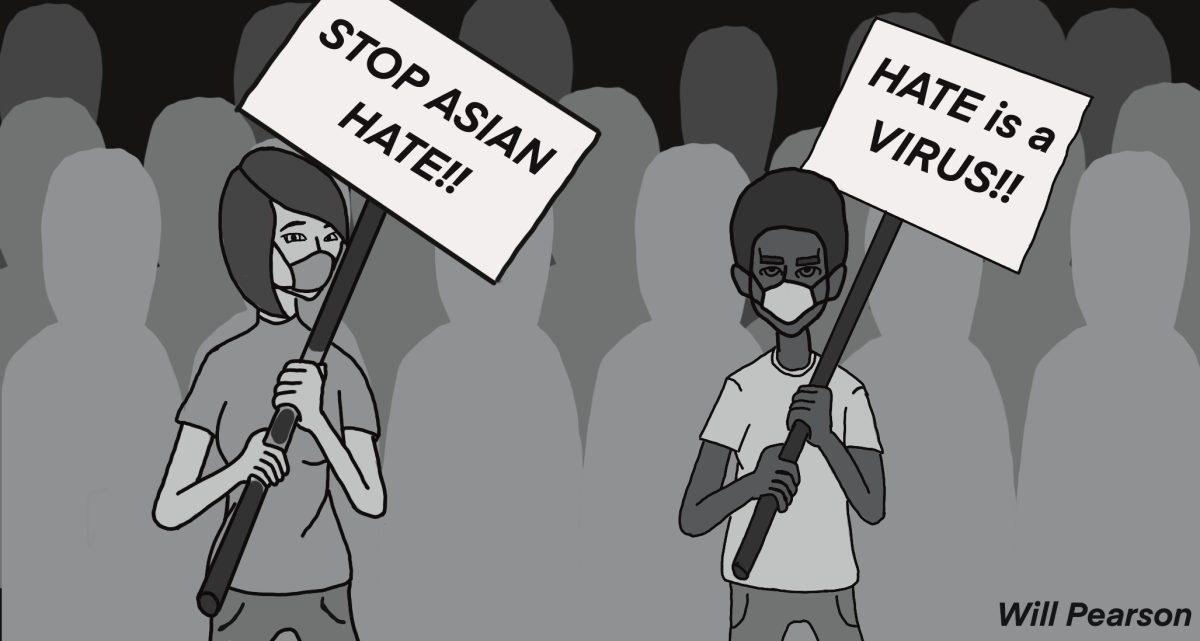Racism against Asian Americans has been prolific since Asian workers began immigrating into the U.S. in the mid-1800s. Even before the Chinese Exclusion Act of 1882 and long before Japanese internment during WWII, the concept of “Yellow Peril” was born, which existed as sort of a catchall for the threats that white America felt as Eastern Asian immigrants started coming here to work in large numbers. Particularly, the white American working class was afraid they would be put out of work by Chinese immigrants who were willing to work for less.
Yellow Peril is a term I learned last summer. I saw it at a protest against police brutality, written in big black letters on a red poster board: “Yellow Peril supports Black Power.” I had no idea what the term meant at the time, but I felt like I understood it within the context of the situation. The sign was really just talking about solidarity between victims of white supremacy.
Though the slogan is divisive, it still offers up the idea the relationship between Black America and Asian America is one of overlap. In fact, the slogan was coined by the only Asian field marshal in the Black Panther Party, Richard Aoki, in 1969. According to the author of Aoki’s biography, Diane Fujino, as referenced in an article written by Taylor Weik of NBC News, “The Panthers understood that racism against Japanese Americans and Asian Americans was linked to black liberation, and that these communities were both oppressed by white supremacy.”
This last year in particular, Asian Americans were subjected to a new wave of racism and violence as white supremacists blamed Asians for COVID-19. Former President Donald Trump and other conservative leaders referred to the pandemic as the “China Virus” for months. However, it does not stop there. Just a couple weeks ago, a white man named Robert Long shot and killed eight people in a spa, six of the victims being Asian. According to a report released by the group known as Stop Asian American Pacific Islander (AAPI) Hate, some 3700 hate incidents occurred against the Asian American and Pacific Islander populations in 2020, 42% of which were perpetrated against Chinese individuals specifically.
As these events have brought Asian American communities around America into the spotlight, one which piqued my attention is surprisingly close to home and illustrates the concept of Asian-Black solidarity: the Chinese community of the Mississippi Delta.
This populace initially came to work in Mississippi’s booming agricultural industry directly following the Civil War and bled into the early 1900s. According to Melissa Block with NPR, many Chinese citizens switched to the grocery business in the 1930s en masse. The town of Greenville boasted as many as 50 different Chinese-owned grocery stores for 40,000 people. Mississippi was still segregated when the original Chinese population arrived in the early 1900s, meaning that Chinese families were subjected to ad-hoc redlining to keep the minority group out of “white neighborhoods.”
Subsequently, Chinese families opened up shops in Black neighborhoods, creating an uncanny cultural meeting in a place with a historically absolute race binary. Segregation led to an inevitable and purposeful sense of separation between racial groups, and the Chinese population integrating with the Black population offered one of the first looks at the future of diversity in Mississippi.
Many of these families still live in the Delta today, even though the area, much like the rest of Mississippi, has been subject to the Brain Drain, which is a trend among college graduates leaving their hometowns for areas with better opportunities. As explained by Taylor Pang in an article written by James Estrin with the New York Times about the Chinese communities in the Delta, “The only reason why you are still stuck in the Delta is because you are a farmer, teacher or someone in the medical field. There is nothing really here anymore.”
Regardless, in a time when hate crimes are on the rise and racial tension is a prolific issue in pop culture and social media, idiosyncratic stories of culture-mixing and solidarity are both a comfort and a reminder of the possibility of coexistence without assimilation. The Chinese community of the Delta is still Chinese but has also become something new and lovely. It has become an extension of the culture it came from, pushing itself into an uncanny new context and becoming something Mississippians can and should appreciate about our history and culture.





















































































